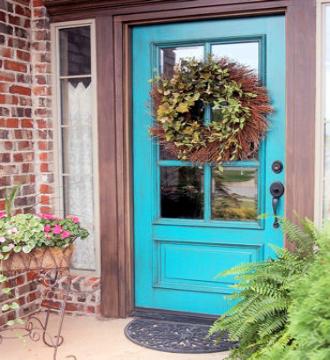| .. |
| Eastern Kansas Real Estate Source. Serving Miami County, Linn County, Anderson County, Franklin County, and Johnson County. Covering Residential, Commercial, and Farm Properties. Hannes Poetter a Crown Realty Real Estate Agent. |

| . |
| . |
| . |
| . |
| . |
| . |
| . |
| First Time Home Buyer – Can we Talk? |
Buying a home is exciting, especially when you’re buying for the first time. In the midst of all of the excitement, it’s easy to become blinded by beautiful back-splashes, granite and quartz counter tops, hardwood floors, and fenced-in backyards. While looking at homes that are completely perfect from top to bottom, you may begin to rationalize a larger purchase than you had originally planned for — “This house is perfect for me; it’s worth $50,000 extra dollars for me to have a house with enough space in a perfect location,” or “We were planning on spending a little bit of money on painting; we can spend $50,000 extra on this house because it doesn’t need any work.” 1. Overspending Before you even look at a single property, you need to know exactly how much you can afford. There are several online calculator tools you can use, but these tools are only estimates. Use these tools as a guide, but then adjust the amount based on your individual situation. How much is your current rent payment? Did you meet that payment each month with ease, or was it a bit of a struggle each month? The payment you can afford right now is a good indicator of what you’ll be able to afford in your new home. Meet with a lender and get pre-approved for an amount you can afford. Also, keep in mind that it’s always better to lean towards a lower amount, rather than a higher amount. You do not have to use the entire amount you’re pre- approved for. Once you know how much you have to work with, then and only then should you start your house hunt. 2. Counting chickens before they hatch When determining how much mortgage you can afford, base this amount on what you are earning today. That is, the income that you and your spouse earn from stable sources. If you’re in your last year of law school, for instance, don’t assume that you will be earning much more money in a year or two, so you can afford a larger payment. If your wife is expecting a big promotion, don’t base your mortgage payment off of her potential salary increase. No one can predict the future, and although you may very well be in a better financial situation a year down the road, there is no guarantee. 3. Failing to account for closing costs, property taxes, HOA, and homeowner’s insurance When you rent a home, you generally only have one payment — rent — and then maybe renter’s insurance, which is optional. When you buy a place, your mortgage payment is only the beginning of an array of costs. Homeowner’s association fees can be as low as $0 or as high as a few hundred dollars per month, depending on where you live and the amenities and services offered. Homeowners insurance and property taxes are based on your geographic location. Florida has notoriously high homeowner’s insurance rates, where they average $161.08 per month. In Idaho and Wisconsin, rates are a bit lower, averaging below $50 per month, according to Value Penguin. Property taxes average higher in New Jersey, New Hampshire, Texas and Wisconsin and they’re lower in Louisiana, Hawaii, and Alabama. Kansas is right in the middle of things. Then on top of all of those costs, if your down payment is less than 20 percent of the selling price, you may end up paying an additional cost — private mortgage insurance (PMI) — which is basically insurance for the lender in case you default on your loan. At the end of it all, your $800 mortgage payment can easily turn into a $1,200 house payment. 4. Failing to protect yourself with home inspections, contingency clauses, etc. During your house hunt, you may find a house that looks great at first glance. Then, as you walk through a few of the rooms, you notice problems with the house — maybe the floors squeak or the kitchen island is off-centered. After walking through the house, you come to realize that someone simply put lipstick on a pig, and this house is in questionable shape. Home inspections provide you with some protection. The inspector will be able to find problems that you can’t and you want to know these problems before you sign on. “The seller isn’t likely to tell you there’s mold in the basement or the walls are poorly insulated.” Contingency clauses also offer a form of protection. “A mortgage financing contingency clause protects you if, say, you lose your job and the loan falls through or the appraisal price comes in over the purchase price. Should one of these events occur, the buyer gets back the money he used to secure the property. Without the clause, he can lose that money and still be obligated to buy the house.” 5. Being too naive or too paranoid Some first-time home buyers are naive. Overly optimistic, they think nothing could possible go wrong. If a home has a few problems, they view them as easy fixes and are unrealistic when it comes to the cost and time it takes to fix up the home. Some naive buyers will move to a neighborhood on the wrong side of town, forgetting that you can fix up a house, but you can’t change your neighborhood or location without moving. Paranoid buyers are sometimes difficult to work with. They may not believe the price is an accurate assessment of the house’s market value. They’ll submit low-ball offers and then show frustration when they are consistently rejected. Paranoid buyers don’t trust real- estate agents, and may even try to buy their home without an agent, which is generally an unwise choice. |
Tax Advantages owning a Home Buying a home is the biggest investment many people ever make. And it can be the wisest, due partly to a number of tax advantages the government has instituted to encourage home ownership. These benefits can help reduce the cost of buying and owning a home and also leave you with more money when it’s time to sell. Because tax rules vary based on income and other factors, you should consult an accountant or financial advisor for advice on your particular tax situation. Mortgage interest One of the biggest incentives to owning a home is that the interest you pay on your mortgage is tax-deductible, up to a limit of $1 million. This deduction, like most other tax breaks for homeowners, applies to any kind of home. That includes a second home, as long as you spend a certain amount of time there: either 14 days each year, or 10 percent as much time as it’s rented. In addition, you can deduct the interest on up to $100,000 of other debt that uses your home as security — for example, a home equity loan. However, the amount you can deduct may be limited if the money you borrow raises your debt above the home’s actual market value. This can sometimes happen when a lender extends you a loan based on more than the value of the house. You can also deduct any amount you pay for points to reduce the interest rate of your mortgage or other loan linked to your home. In most cases, the points on a mortgage to buy or build your principal home can be deducted fully in the first year. However, if you refinance, take a home equity loan, or a loan secured by a second home, the points must be deducted over the life of the new loan. The exception is if you use part of a refinanced mortgage to improve your house; that portion of the points can be deducted in the same year. Tax-free profits Another major advantage of home ownership is that, in most cases, you don’t have to pay taxes on any profit you make when you sell your home. The law allows you to exclude from taxes up to $250,000 in profit from the sale of your principal home — $500,000 for a couple who file jointly. This exclusion also covers the sale of a parcel of land adjacent to your house, unless it’s used for business. There are some stipulations, however. The home must be your principal residence, and you (and your spouse, where applicable) must have lived there for at least two of the previous five years. You can only claim the exemption once every two years. If you don’t meet those requirements, you may still claim a partial exemption if the sale was due to a change in your place of employment, necessary for health reasons, or due to other unforeseen circumstances. Property taxes You can claim property taxes you pay as an income tax deduction. This applies to both your principal home and any others you may own. Any money held in escrow to pay future taxes, however, is not deductible. Moving expenses The government allows you to write off many of your moving costs when you buy a new home if it’s at least 50 miles closer to your job than your old home. To qualify, you must continue to work full-time in the general area of your job for 39 weeks during the following year. If you’re self-employed and work in your home, any move of 50 miles or more will make your moving expenses deductible. However, you must also work full-time near the new location for 78 weeks during the next 24 months. Of course, because tax rules vary based on income and other factors, be sure to consult an accountant or financial advisor about your particular situation. In the market for a new home or a second home? Call me and I will point you in the right direction. |
| text or call (913) 731 6600 |
One of the most important steps is what’s known as pre-approval. Pre-approval will help you immensely when you’re searching for a home. It might even give you an edge on the competition once you’re ready to make an offer. In a competitive market, some sellers won’t even entertain offers from buyers unless they have a pre-approval letter in hand. So what exactly does it mean to be pre-approved for a mortgage? What It Means To be pre-approved for a mortgage means that a bank or lender has investigated your credit history and determined that you would be a suitable candidate for a mortgage. (If you want to see where your credit currently stands, the free Credit Report Card grades your credit history on the basics and also provides two free credit scores.) Pre-approvals might only be good for a certain amount of time but they usually signify that a lender is ready and willing to lend you money. It’s a big step in showing sellers that you are serious about buying a house and that your offer should be treated accordingly. What It Involves Getting pre-approved is a somewhat lengthy process. But at the end of it all you’ll know whether you can buy a home or not. The process starts before you even find a home. First, you’ll need to go to a lender and complete a mortgage application and provide documents related to your financial history. The bank or lender will then do a thorough investigation into your finances in order to determine how much money they are willing to loan you. At the end of the pre-approval process, you should be given an exact loan amount. This allows you to look for homes at that price point or lower. At this point, you’ll also have a good idea of the interest rate you’ll be given at the end of the pre-approval process. The real benefit of getting pre-approved is that when you find a place you’ll be able to move quickly. Once you make an offer, you won’t have to scramble for financing since you’re pre- approved. Pre-Qualified vs. Pre-Approved You may have heard the term pre-qualified in the past and assumed that it was the same thing as being pre-approved. Although similar, they are actually two different things. Getting pre-qualified involves sitting down with a lender in order to get an idea of how much money you can borrow. But it is only informational. You would supply the lender with data such as your income, assets and debts and the lender would give you an idea of how much you can borrow, what type of mortgage options there are, etc. A lot of people make the mistake of thinking that pre-qualified means pre-approved, but this is not the case. Getting pre-qualified doesn’t mean the bank will loan you that amount, but it can give you an idea of how much you can expect to be given once you get pre-approved. Those who are not sure if they are ready to buy a home may want to get pre-qualified, but though it’s not necessary to the mortgage process, a good Realtor will only work with you if you have been pre-qualified by a lender. |

| HP– |
| Kansas Real Estate LLC – Hannes Poetter – President |

| . |
| . |
| . |
| . |
| . |
| . |
| . |
| . |
| . |
| . |
| . |
| . |
| . |
| . |
| . |
| . |
| . |
| . |
| . |
| . |
| . |
| . |
| . |
| . |
| . |
| . |
| . |
| . |
| . |
| . |
| . |
| . |
| . |
| . |
| . |










